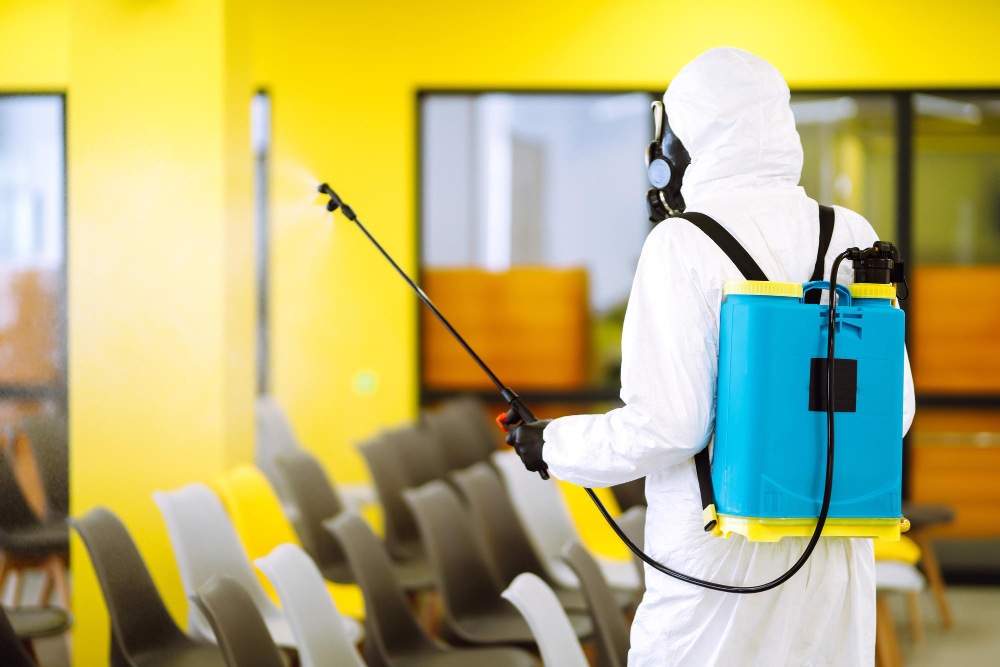Introduction
The pest control industry is witnessing remarkable growth due to increasing public awareness about pest-related health issues and the demand for effective pest management. For aspiring entrepreneurs looking to dive into this lucrative market, a pivotal decision lies ahead: whether to opt for a franchise or to embark on the journey of starting an independent pest control business. Each option presents unique advantages and challenges that can shape your entrepreneurial experience. This blog will delve into the differences between Franchising vs. Independent Pest Control Business, equipping you with the insights needed to make an informed decision.
I. Understanding Pest Control Business Models

1. Definition and Explanation of Franchising in the Pest Control Sector
Franchising is a business model where an individual or group (the franchisee) is granted the right to operate a business under the name and system of an established brand (the franchisor). In the pest control sector, this model provides a pathway for new business owners to enter the market with the backing of a well-recognized name.
Franchisees benefit from the established reputation of the brand, which can significantly enhance customer trust and confidence. This is particularly crucial in industries such as pest control, where consumers often seek assurance of effectiveness and safety.
Franchisors typically offer comprehensive training programs that cover everything from pest management techniques to customer service, allowing franchisees to operate efficiently from the start. Additionally, the franchising model often includes access to a suite of resources, such as marketing materials and operational support, making it easier for new business owners to hit the ground running.
2. Overview of Independent Pest Control Businesses and Their Characteristics
Independent pest control businesses operate without the affiliation of a franchisor. These businesses are built from the ground up, allowing owners the freedom to shape their brand identity and operational practices.
Characteristics of independent pest control businesses include:
- Brand Development: Owners have the liberty to create a brand that reflects their values and vision, tailoring services to meet specific market demands.
- Operational Flexibility: Independent operators can make decisions that best suit their business model, including service offerings, pricing strategies, and marketing tactics.
- Community Engagement: Many independent pest control businesses thrive on local relationships and community engagement, often fostering strong customer loyalty.
While the independence that comes with running an independent pest control business can be appealing, it requires a robust understanding of market dynamics and business management.
II. Pros and Cons of Franchising in the Pest Control Business

1. Benefits of Starting a Pest Control Franchise, Including Brand Recognition and Support
Choosing to franchise can provide significant advantages, particularly for those new to the pest control industry.
- Brand Recognition and Trust: Franchisees benefit from the immediate trust that consumers place in established brands. This recognition can lead to quicker customer acquisition and increased revenue. Customers often feel more comfortable hiring a known entity, reducing the time and effort required for marketing.
- Comprehensive Training and Support: Franchise agreements typically come with extensive training programs covering operational procedures, pest management techniques, and customer service excellence. This training helps new franchisees navigate challenges more effectively and increases the likelihood of business success.
- Proven Business Model: The operational systems and processes provided by the franchisor are often based on years of experience and market testing. This reduces the risks associated with starting a new business, as franchisees can follow a tested roadmap to success.
- Ongoing Marketing Support: Franchisors usually invest in marketing campaigns that benefit all franchisees, enhancing brand visibility and attracting more customers. Franchisees often receive marketing materials and guidelines to help them effectively promote their local business.
2. Challenges Faced by Franchisees, Such as Fees and Limited Operational Flexibility
Despite the many benefits, franchising also comes with its set of challenges:
- Initial Investment Costs: Franchisees often face substantial startup costs, including franchise fees, equipment purchases, and ongoing royalties. These financial obligations can strain budgets, especially in the early stages of business.
- Limited Operational Flexibility: Franchise agreements often stipulate strict adherence to established operational procedures. While this can provide structure, it may limit creativity and the ability to adapt to local market conditions.
- Dependency on Franchisor: Franchisees rely heavily on their franchisor for support, marketing, and brand reputation. If the franchisor experiences issues, it can directly affect the franchisee’s business.
- Potential for Royalty Increases: Some franchise agreements include clauses that allow franchisors to increase royalty fees over time. This can impact profit margins and long-term financial planning for franchisees.
III. Advantages and Disadvantages of Starting an Independent Pest Control Business

1. Key Benefits of Operating Independently, Including Creative Freedom and Potential for Higher Profits
Starting an independent pest control business offers several significant advantages:
- Creative Freedom: Independent business owners have the flexibility to design their services and operational practices without the constraints of a franchisor. This freedom allows for innovation and the ability to respond swiftly to customer needs.
- Higher Profit Margins: Without franchise fees and royalties, independent operators can retain a larger share of their profits. This financial flexibility allows for reinvestment in the business, marketing, and customer service enhancements.
- Building a Unique Brand: Operating independently enables you to create a brand that resonates with your target audience. This personal touch can foster loyalty and encourage word-of-mouth referrals, essential for long-term success.
- Tailored Services: Independent operators can customize their service offerings to meet the specific needs of their local market, potentially attracting niche customers and standing out from competitors.
2. Potential Challenges, Such as Lack of Established Brand and Support Systems
While independence can be appealing, it comes with its challenges:
- Building Brand Recognition: Independent operators must invest time and resources into establishing their brand and gaining customer trust. This process can be time-consuming and often requires substantial marketing efforts.
- Lack of Support and Resources: Independent businesses lack the structured support systems provided by franchises. This can create challenges for new owners, particularly those unfamiliar with the industry.
- Comprehensive Business Management: Independent operators are responsible for all aspects of the business, from regulatory compliance to marketing and customer service. This responsibility can be overwhelming for those who are not well-versed in business management.
- Market Competition: Competing against established franchises can be challenging, especially in densely populated areas. Independent operators must develop strong marketing strategies to differentiate themselves and attract customers.
IV. Evaluating Your Goals: How to Decide Between Franchising and Independence

1. Questions to Consider When Determining Which Model Suits Your Aspirations and Lifestyle
When deciding between a franchise and an independent pest control business, it’s essential to reflect on your personal goals and lifestyle:
- Support Needs: Do you prefer a structured support system and training, or do you feel confident in your ability to navigate the challenges of starting a business independently?
- Financial Goals: Consider your financial situation and whether you are willing to invest in franchise fees and ongoing royalties. Are you looking for higher profit retention, or do you prioritize the security of a proven business model?
- Desire for Control: How important is it for you to have control over your business operations, branding, and marketing strategies? If you value autonomy and creativity, an independent model may be more appealing.
- Long-Term Aspirations: Reflect on your long-term business goals. Are you looking to scale your business quickly, or do you prefer to build gradually and focus on quality service?
2. Factors Such as Financial Investment, Risk Tolerance, and Desired Level of Support
Evaluating your readiness to embark on this entrepreneurial journey involves considering several factors:
- Financial Investment: Assess your financial capabilities and willingness to invest in either a franchise or an independent business. This includes considering startup costs, ongoing expenses, and potential earnings.
- Risk Tolerance: Are you comfortable taking on the risks associated with starting a new business, or would you prefer the relative security that comes with a franchise? Understanding your risk tolerance is crucial in making this decision.
- Desired Level of Support: Consider how much support you feel you need. If you’re new to the industry and would benefit from guidance, franchising might be the better choice. Conversely, if you’re experienced and comfortable managing independently, you may thrive in an independent setting.
- Market Conditions: Research the pest control market in your area to determine the level of competition and consumer demand. Understanding market dynamics can inform your decision-making process.
V. Key Steps on How to Start a Pest Control Business

Regardless of the model you choose, there are essential steps involved in launching a successful pest control business. Here’s a detailed guide on how to start a pest control company and what you need to start a pest control business:
1. Conduct Market Research
Before starting your pest control business, conducting thorough market research is critical. This involves:
- Identifying Your Target Market: Determine who your ideal customers are, whether residential, commercial, or industrial. Understanding your target market will guide your marketing efforts.
- Analyzing Competitors: Study existing pest control companies in your area. Identify their strengths and weaknesses to position your business effectively.
- Understanding Regulatory Requirements: Research local regulations regarding pest control services, including licensing and safety standards. This knowledge is essential for compliance and legal operation.
2. Create a Comprehensive Business Plan
A well-structured business plan serves as a roadmap for your pest control business. Your plan should include:
- Executive Summary: Provide an overview of your business concept, goals, and mission.
- Market Analysis: Summarize your market research findings, detailing customer needs and competitive landscape.
- Marketing Strategy: Outline how you plan to attract and retain customers. Consider digital marketing, local advertising, and community engagement strategies.
- Financial Projections: Include detailed financial forecasts, such as startup costs, projected revenue, and profit margins.
- Operational Plan: Define your business structure, services offered, and operational processes.
3. Obtain Necessary Licenses and Permits
Ensure you comply with all legal requirements by obtaining the necessary licenses and permits. This may include:
- Pest Control License: Most states require pest control operators to hold a specific license. Research your state’s licensing requirements and complete the necessary training.
- Business License: Depending on your location, you may need a general business license to operate legally.
- Insurance: Protect your business by obtaining liability insurance, workers’ compensation insurance, and any additional coverage specific to your services.
4. Develop Your Brand and Marketing Strategy
Branding plays a crucial role in attracting customers. Consider the following:
- Brand Identity: Create a compelling brand name, logo, and messaging that resonates with your target audience. Your brand should convey trust, professionalism, and expertise.
- Online Presence: Establish a website and utilize social media platforms to promote your services. Consider investing in search engine optimization (SEO) to enhance online visibility.
- Local Marketing: Leverage local advertising opportunities, such as flyers, community events, and partnerships with local businesses to generate leads.
5. Set Up Your Operations
Before launching, ensure your operations are well-structured:
- Equipment and Supplies: Invest in necessary pest control equipment, safety gear, and supplies. This may include traps, pesticides, protective clothing, and vehicles.
- Hiring Staff: If you plan to hire employees, ensure you have a clear recruitment process and training program in place to ensure quality service.
- Customer Management: Implement a system for managing customer interactions, appointments, and follow-ups. This may include scheduling software or customer relationship management (CRM) tools.
6. Launch Your Business
With everything in place, it’s time to launch your pest control business! Start by:
- Marketing Your Services: Execute your marketing strategy to generate awareness and attract your first customers. Consider offering introductory promotions to entice potential clients.
- Providing Exceptional Service: Focus on delivering high-quality service to build a loyal customer base. Positive word-of-mouth can significantly impact your business growth.
- Seeking Feedback: Encourage customer feedback and reviews to continually improve your services. Use this feedback to adjust your offerings and enhance customer satisfaction.
VI. Starting Your Exterminator Business: What You Need to Know

1. Overview of Requirements and Regulations for Starting an Exterminator Business
Launching an exterminator business involves understanding the regulatory landscape. Key requirements include:
- Licensing: Most states mandate that pest control professionals obtain specific licenses. Ensure you meet all training and examination requirements for your area.
- Health and Safety Compliance: Familiarize yourself with safety protocols and regulations governing pesticide use and disposal. Compliance is critical for both legal operation and customer safety.
- Environmental Regulations: Be aware of environmental regulations that may impact your pest control methods, particularly concerning the use of chemicals.
2. Tips for How to Start a Mosquito Control Business as a Specialized Service
If you’re considering specializing in mosquito control, here are some tips to get started:
- Understand Mosquito Biology and Behavior: Familiarize yourself with the lifecycle and behavior of mosquitoes to develop effective control strategies.
- Invest in Specialized Equipment: Equip your business with the tools necessary for mosquito control, such as foggers and larvicides.
- Educate Customers: Provide information to customers about mosquito prevention methods, such as eliminating standing water around properties.
- Market Specialized Services: Highlight your expertise in mosquito control through targeted marketing efforts, emphasizing the importance of preventing mosquito-borne diseases.
Conclusion
In conclusion, the choice between franchising and starting an independent pest control business is significant and requires careful consideration of your goals, financial capabilities, and desired level of support. Each model offers unique advantages and challenges, and the decision ultimately hinges on your personal aspirations and entrepreneurial vision.
Author


